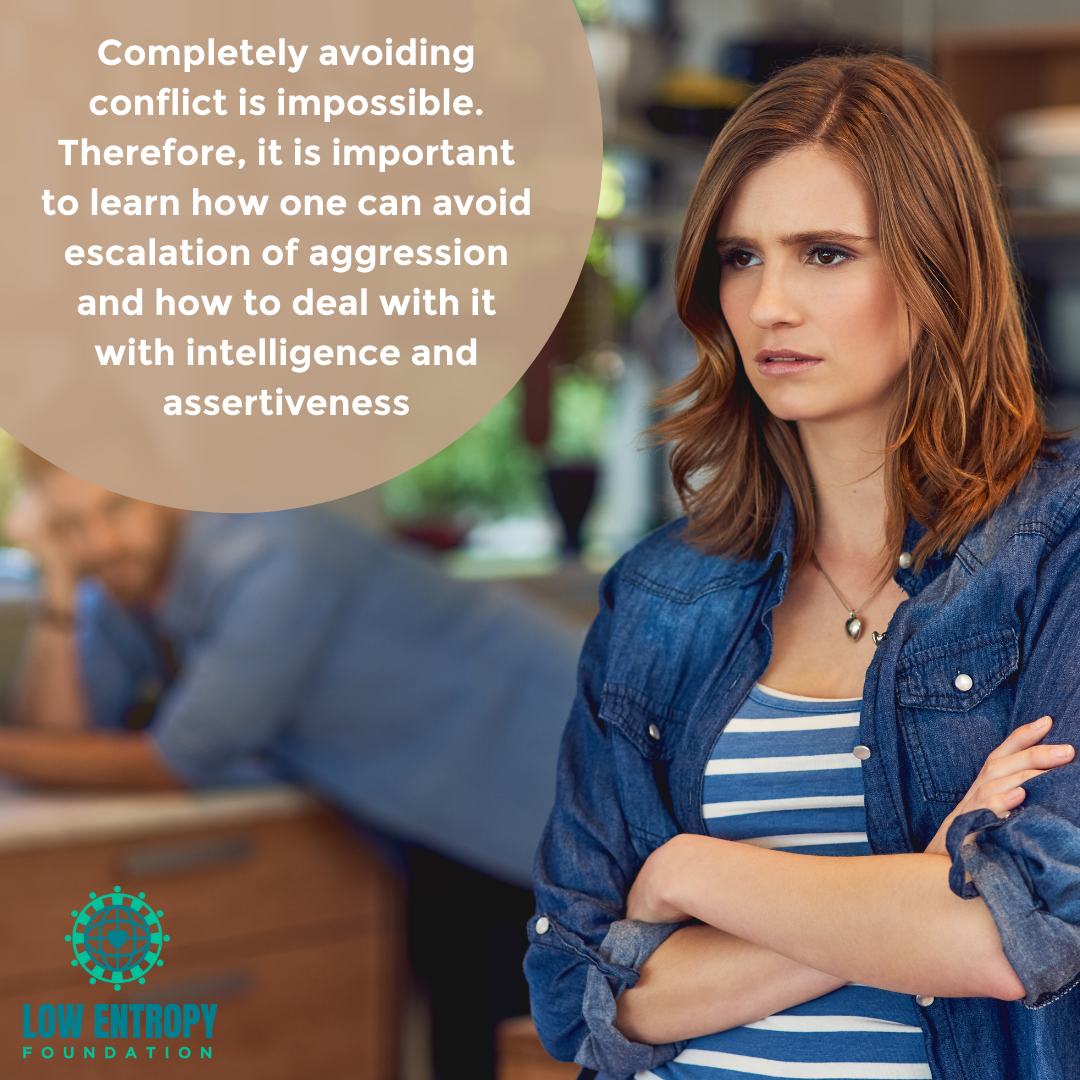Dealing with Family Conflicts
April 22, 2022

Grace Cheng (she/her/hers), Low Entropy Volunteer Writer
Everyone experiences conflict with their families from time to time. It is an inevitable part of coexisting within a family unit with varying ages, views, and perspectives on life. However, it is important to not dismiss conflict at all costs. It is impossible to completely avoid all conflict. Therefore, it is important to learn how one can avoid escalation of aggression and how to deal with it with intelligence and assertiveness.
Conflicts are a natural and common part of family life. There are times however, when serious instances can occur and pose some difficulties for all members. You are likely to struggle with the effects of these disputes and find it difficult to live a fulfilled and happy life. In this article, we will discuss the different types of family conflicts and the most effective methods for managing them to ensure a happy life within one’s home.
Types of Family Conflicts:
- Spousal Conflicts
Amongst partners, disagreements and crises are unavoidable; however, if the couple can manage them effectively, these conflicts can serve to strengthen their bond. Among the most common causes of daily conflicts between married couples are:
- Communication difficulties such as incorrect language, reproaches, emotional language and insults.
- Loss of autonomy and freedom on the part of one of the members of the couple.
- Attempts to change the other person’s attitudes and behaviors.
- Poor problem-solving skills.
- Parents and Children Conflicts
These types of conflicts can be divided into three categories based on the development stage of each party involved:
- In the earlier stages of life, conflicts often arise due to the development of the child’s autonomy. These situations can occur when either a parent does not understand how to grant autonomy, or they do not believe that the child is following the direction they believe is most appropriate.
- During the teenage years, many conflicts can occur. These symptoms typically appear in adolescents between the ages of 12 and 18 years, and they are usually caused by emotional fluctuations that are common in their age group.
- Conflicts with young adult children: When children reach adulthood their differing perspectives and understandings of how to live and organize their lives will create some friction between a parent and child.
- Sibling Conflicts
Conflicts of this type are among the most frequent and are also among the most persistent, regardless of the stage in life in which they occur. Arguments are usually brief and parents are not necessarily required to intervene.
- The Elderly Conflicts
As an adult grows older, he or she experiences several changes. There are both biological aspects, such as seeing one’s physical deterioration, as well as social aspects, such as the loss of friends or loved ones. The elderly can experience these changes in a potentially dramatic manner which causes conflict with their family members.
Methods in Handling Family Conflicts:
- Understand the Cause of the Problem
To resolve a difficult family conflict, you need to identify the cause of the problem. The tension decreases when more effort is spent on eliminating the conflicts and more effort is put into preserving the family relationship.
- Focus on what is Important
It is impossible to win a battle with a hurricane, so it is crucial to protect what is important. If conflicts are frequent and intense, you should stop fighting the storm and focus on protecting what matters most to you and your family. Regardless of the importance of setting and enforcing rules, you should protect the relationship you have even during difficult times.
- Do not Focus on the Negative
While a conflict is ongoing, you should focus more on what is good in the family than on what is wrong. It may be as simple as making a list of the positive aspects of your life to help you stay focused on your long-term objectives.
- Try to Find a Common Ground
An ongoing conflict can also be resolved on both sides by declaring a truce. This is the time you each agree to put aside your disagreements and engage in an enjoyable activity together that will rejuvenate your family.
- Taking a Pause
Consider taking a break if you find that you’re overwhelmed by your emotions and unable to think rationally. Not all conflicts require immediate resolution. Consequently, the best course of action, in this case, would be to pause. Take some time to cool off and consider how to improve your relationship and resolve the issue. Eventually, you will be able to return to the problem and come to an understanding with your family member while being objective and open to criticism.
- Accepting the Family Member as a Difficult Person
This is a highly effective strategy. Accepting a difficult family member as they are can allow us to let go of the tension and stress caused by resistance.
- Learning how to Forgive and Forget
Sometimes, the best approach is to simply let everything go. You hold too much inside and it is time to release everything that clogs your mind and soul. Having the ability to forgive people and to forget their mistakes and wrongdoings is one of the most difficult and pleasant experiences in life. Allow yourself to let go of negative emotions to create space for more positive feelings. Create a fresh state and move forward with your life.
Now that you have learned how to manage family conflicts, are you ready to take the first step to resolve them in your life?
—
Grace has an accounting and finance background. She enjoys reading, writing, listening to music, watching movies and playing sports.
GET INVOLVED
At Low Entropy, we believe changing the world starts with changing ourselves.
Founded in 2015, Low Entropy Facilitates conversations that encourage diversity and promote inclusivity.
We understand that life can be confusing at times. It can seem challenging and sometimes you may feel like no one really “gets you.” We offer an opportunity to connect with others who have the capacity to understand you.









